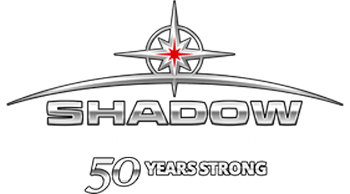When you’re shipping goods overseas, you’ll often come across two terms: FCL (Full Container Load) and LCL (Less than Container Load). Both are popular methods for ocean freight, but they work best for different types of shipments. Picking the right one can save you both time and money, making sure your goods are shipped smoothly and efficiently.
So in this article, we’ll break down the difference and help you figure out which one suits your needs best.
FCL vs LCL Key Differences
Advantages & Disadvantages of FCL Shipping
FCL vs LCL shipping refers to two ways of shipping goods by sea. FCL shipping means using a whole container for one sender’s goods. It’s great for businesses with enough products to fill a container or those who want the extra security of having their own space.
Advantages of FCL shipping include faster transit times due to fewer stops, a lower risk of damage since there are fewer touchpoints, and direct shipping from the origin to the destination port, which increases overall efficiency.
FCL shipping can get pricey for smaller shipments that don’t fill the container, making it less cost-effective. Plus, with fixed schedules and container sizes, there’s less flexibility, and you might end up paying for unused space.
Advantages & Disadvantages of LCL Shipping
LCL shipping involves sharing a container with other shippers, where each shipper’s goods occupy a portion of the container space. This method is ideal for businesses with smaller shipments that don’t require a full container.
Advantages of LCL shipping include lower costs, as you only pay for the space you use, making it more affordable for smaller shipments. LCL also offers more flexibility, allowing you to ship smaller quantities while still benefiting from containerized freight, with more frequent shipping schedules than FCL.
However, LCL shipping can result in longer transit times because goods need to be consolidated before departure and deconsolidated upon arrival. Additionally, there is a higher risk of damage, as your goods are stacked with others and undergo more handling.
Which Option is Right for You?
The choice between FCL vs LCL shipping depends on your specific needs:
- Choose FCL if you have large, bulk shipments that will fill a container. It offers faster, more secure shipping.
- Choose LCL if you have smaller shipments that don’t fill an entire container, or if your shipments are infrequent. It’s a more affordable option for small businesses or those looking to ship irregular quantities.
No matter which option you choose, it’s crucial to work with a reliable logistics partner that can help guide your decision and streamline the shipping process. At Shadow Group, we offer expert shipping services to help you navigate the complexities of both FCL and LCL options.
For guidance on the best shipping solution for your business, contact us at Shadow Group. We are here to make sure your cargo arrives safely, on time, and at the best possible cost!
